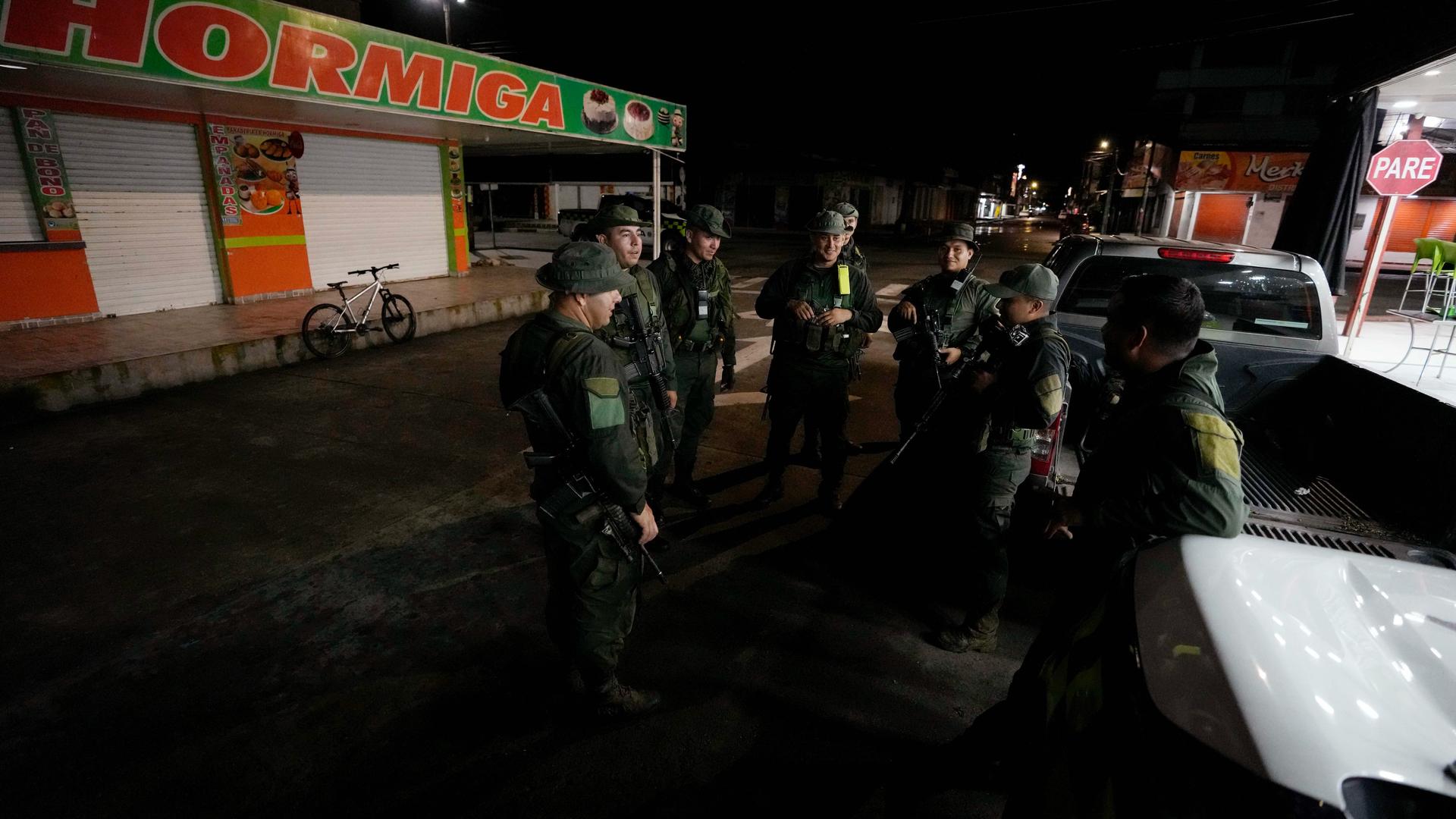Legislators in Colombia are discussing a controversial bill that would regulate the use and distribution of coca leaf and its derivatives, including cocaine.
The bill was first proposed in August 2020, and would set a legal market price for the coca leaf, while allowing the government to buy coca harvests directly from growers.
The bill’s supporters hope this piece of legislation will gain traction now that Colombia’s Truth Commission has called for the legal regulation of illicit drugs, and incoming President Gustavo Petro brings some radically different views on drug policy, compared to his predecessors.
If the bill is approved, it would be the first time that a country legalizes a drug as addictive and harmful as coca.
“After decades of a failed war on drugs, there is no surprise that Colombia is looking at something different,” said Coletta Youngers, a drug policy expert with the Washington Office of Latin America (WOLA).
The war on drugs is a phrase used to refer to a government-led initiative to combat illegal drug use, distribution and trade by dramatically increasing prison sentences for both drug dealers and users.
The strategy was consolidated in the United States in the early 1970s after President Richard Nixon declared drug abuse as “America’s public enemy No. 1.” He equipped law enforcement with the tools to disrupt drug cartels, increased border interdiction and pursued complimentary international diplomatic initiatives. He also expanded programs for drug abuse education, treatment, rehabilitation and research.
Prohibition policies were adopted across Latin America, in a joint effort with the US. But many experts question its effectiveness.
“Colombia, as well as other countries in the region, did everything that they were supposed to do in terms of combating the drug industry,” Youngers said, “and yet you find more drugs than ever before, more drug trafficking routes across Latin America; drug use has steadily gone up. And you have horrific corruption and violence associated with prohibition policies.”
For Youngers, the only winners in the war on drugs are the cartels. And those who paid the highest price are the poorest, especially women who go to prison for minor drug offenses.
Younger’s research shows that in most Latin American countries, drug-related crimes are the main cause of female incarceration.
It happened to Patricia Merchán, a mother of seven who grew up in a dangerous neighborhood in Bogotá, Colombia. She and her family faced extreme poverty after the father of her children walked out, she said.
“I didn’t have any food for my kids. We had no money for clothes, or diapers. We had nothing,” Merchán said.
After spending several years trying to find a good job, Merchán said she didn’t know what to do. Then, someone in the neighborhood offered her work selling drugs.
“He told me it would solve all my problems quickly,” she said.
Merchán sold small amounts of marijuana and cocaine to users in the neighborhood for a few years until she was arrested and sentenced to four years in prison.
She said that the hardest part was leaving her kids. The youngest was 7 months old.
Merchán got out of prison in 2019 and helped start Mujeres Libres, a nonprofit that supports former prisoners in Colombia.
“When a woman is detained for selling drugs out of her home or on the street corner or transporting drugs the very next day, somebody else is there to fill her place,” Youngers said. “The incarceration of these women does nothing to disrupt drug markets or thwart the drug trade.”
Steve Rolles, a policy analyst with the Transform Drug Policy Foundation in the UK, advised the lawmakers in Colombia who wrote the bill. He agrees cocaine legalization is the way to go.
“Cocaine markets exist now, they are worth hundreds of billions of dollars a year, and the truth is that people will use cocaine, whether it’s legally regulated or whether it’s sold by the cartels. There’s no third option in which cocaine magically disappears,” Rolles said.
But he admits that this bill, by itself, would not have a big impact on organized crime because it would only regulate cocaine that is consumed in Colombia. That is a very low amount compared to what’s exported to the US and Europe.
“But the whole point of this bill is that it would begin a conversation and show that cocaine can be regulated in a responsible way,” Rolles said.
He thinks no place in Europe or in the United States will agree to legalize cocaine anytime soon. However, if the bill is approved in Colombia, it could pave the way for other countries to start looking in that direction.
But critics like Jonathan Caulkins, a professor of public policy at Carnegie Mellon University, said that legalizing cocaine would be a disaster for America “because the increase in dependence would be far worse than the current problem that we have.”
He said that legalizing cocaine would transform the market for the drug — leading to “big declines in price. Big increase in potency, the proliferation of product forms, you get marketing. You have to worry that sometimes the industry controls the regulators.”
In the case of Colombia, the bill would prohibit the marketing of cocaine.
It’s unclear if or when this bill would pass. In April 2021, it received unanimous support from a committee in the Senate. Since then, there hasn’t been more discussion, but many are hoping the debate will resume after Petro takes office in August. He was elected as the first leftist president in Colombia.
We want to hear your feedback so we can keep improving our website, theworld.org. Please fill out this quick survey and let us know your thoughts (your answers will be anonymous). Thanks for your time!
